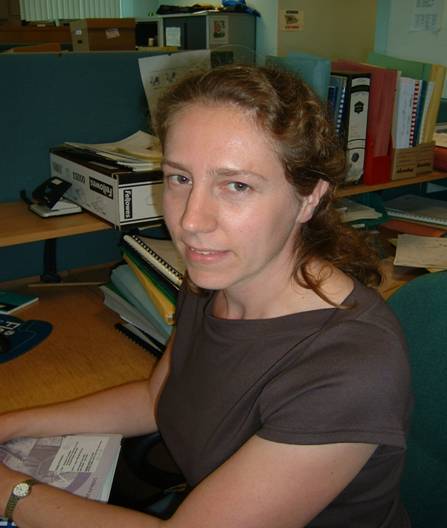How do you describe your job when you meet people at a party?
Since my little boy was born I don’t ‘do’ parties anymore, but if I did I would say that I manage flood risk management and environmental restoration projects
What is ‘cutting-edge’ about your work?
The area of flood risk management is high profile and evolving all the time. As the risk of flooding increases due to climate change and increased development, we are in an arms race in order to meet public expectations
What are the biggest implications your work will/could have in the future?
On the Flood & Coastal Risk Management side my job should ultimately protect people from the worst impacts of flooding. I also manage Water Level Management Plan Projects, which should hopefully lead to a better understanding and management of some of our locally important wildlife sites
Describe some of the highlights of your average day.
I enjoy visiting sites to see progress, when works are taking place
Describe briefly how your career has progressed to date.
I had a tough start when I graduated at the height of the 1994 recession, when jobs were very hard to come by, never mind an environmental type job. So I worked in the local supermarket stacking shelves, and worked voluntarily for the Herts & Middlesex Wildlife Trust to gain relevant experience. My ‘big break’ came when the Environment Agency was formed in 1996, where I have been ever since. I have mainly worked on Flood Risk Management projects, but I did spend a couple of years overseeing all aspects of the environmental management of the Channel Tunnel Rail Link project
How is your job cross-disciplinary?
In my job I need to understand many disciplines including, science, engineering, accountancy, legal to mention a few. I work with many specialists in these areas, and need to know who to talk with and when
How well is your job compensated? What is the starting salary for your field, and how much can this be expected to rise?
Graduates can expect to start on around £20k-£24k rising to £34k for an experienced technical specialist
How do you see your field developing over the next 5-10 years?
There will be a lot more collaborative working with Local Authorities and other partners to deliver a more comprehensive approach to all forms of flooding, not just river and coastal flooding as has been the case in the past
What’s the most unexpected thing about your job?
That even after a number of years in the job, each day brings a new challenge
What’s the biggest achievement of your career so far?
There are 2 projects that I am particularly proud of – my first ‘solo’ project to create a reedbed in the Lee Valley to encourage the endangered Bitterns to breed in this area. Secondly my role overseeing the environmental management of the CTRL project, which was fantastic to be involved in such a high profile and amazing project

